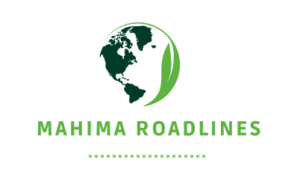Supply chain risk management (SCRM) is the process of identifying, assessing, and mitigating risks and disruptions that may impact the flow of goods, services, and information within a supply chain network. It involves implementing strategies and controls to safeguard supply chain operations against various internal and external threats, vulnerabilities, and uncertainties that could disrupt business continuity, impact performance, or affect stakeholder interests.
Key Components:
- Risk Identification: SCRM begins with identifying and categorizing potential risks and vulnerabilities across the entire supply chain ecosystem, including suppliers, logistics partners, facilities, transportation networks, and market dynamics. Common sources of risk include natural disasters, geopolitical instability, supplier failures, demand fluctuations, regulatory changes, and cybersecurity threats.
- Risk Assessment: Once risks are identified, SCRM involves assessing the likelihood and potential impact of each risk scenario on supply chain operations, financial performance, customer satisfaction, and reputation. Risk assessment methodologies such as risk matrices, scenario analysis, and probability-impact assessments help prioritize risks based on severity and likelihood.
- Risk Mitigation Strategies: SCRM focuses on developing and implementing risk mitigation strategies to proactively address identified risks and vulnerabilities. This may involve diversifying supplier sources, establishing redundant supply chains, implementing business continuity plans, improving inventory management practices, securing insurance coverage, and enhancing cybersecurity measures.
- Supplier Risk Management: Given the significant influence of suppliers on supply chain performance, SCRM emphasizes the importance of supplier risk management. This includes evaluating supplier financial health, conducting supplier audits, assessing geographic and geopolitical risks, monitoring supplier compliance with quality standards and regulatory requirements, and fostering strategic supplier relationships.
- Logistics and Transportation Risk Management: SCRM encompasses the management of risks associated with logistics and transportation activities, including carrier disruptions, port congestion, route delays, and capacity constraints. Strategies such as route optimization, mode diversification, carrier selection criteria, and contingency planning help mitigate transportation-related risks and ensure timely delivery of goods.
- Demand and Inventory Risk Management: SCRM addresses risks related to demand variability, market dynamics, and inventory management. Techniques such as demand forecasting, safety stock optimization, inventory pooling, and agile supply chain practices help organizations better respond to demand fluctuations, minimize stockouts, and avoid excess inventory holding costs.
- Information and Technology Risk Management: SCRM involves safeguarding supply chain information and technology systems from cyber threats, data breaches, system failures, and IT disruptions. This includes implementing cybersecurity measures, data encryption protocols, access controls, system redundancies, and disaster recovery plans to protect critical supply chain data and infrastructure.
Benefits:
- Enhanced Resilience: Effective SCRM enhances supply chain resilience by identifying and mitigating risks before they escalate into disruptions, enabling organizations to anticipate, adapt to, and recover from adverse events more effectively.
- Cost Reduction: By minimizing supply chain disruptions, SCRM helps reduce costs associated with production delays, inventory write-offs, expedited shipping, and supply chain disruptions, leading to improved operational efficiency and cost savings.
- Improved Customer Satisfaction: SCRM enables organizations to maintain consistent product availability, on-time delivery, and service levels, enhancing customer satisfaction, loyalty, and retention in the face of supply chain disruptions.
- Compliance and Reputation Management: SCRM helps organizations comply with regulatory requirements, ethical standards, and industry best practices, protecting brand reputation, stakeholder trust, and market competitiveness.
- Strategic Advantage: Proactive SCRM enables organizations to gain a competitive advantage by identifying and capitalizing on supply chain opportunities, optimizing risk-return trade-offs, and fostering innovation and agility in supply chain operations.





Reviews
There are no reviews yet.